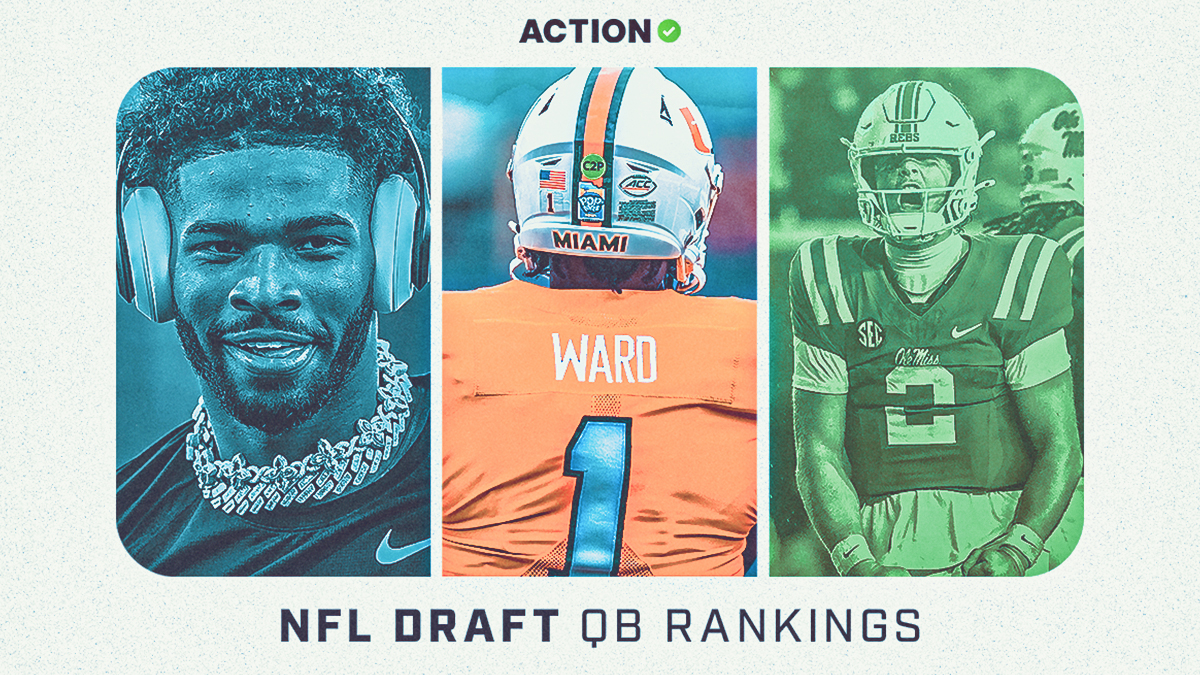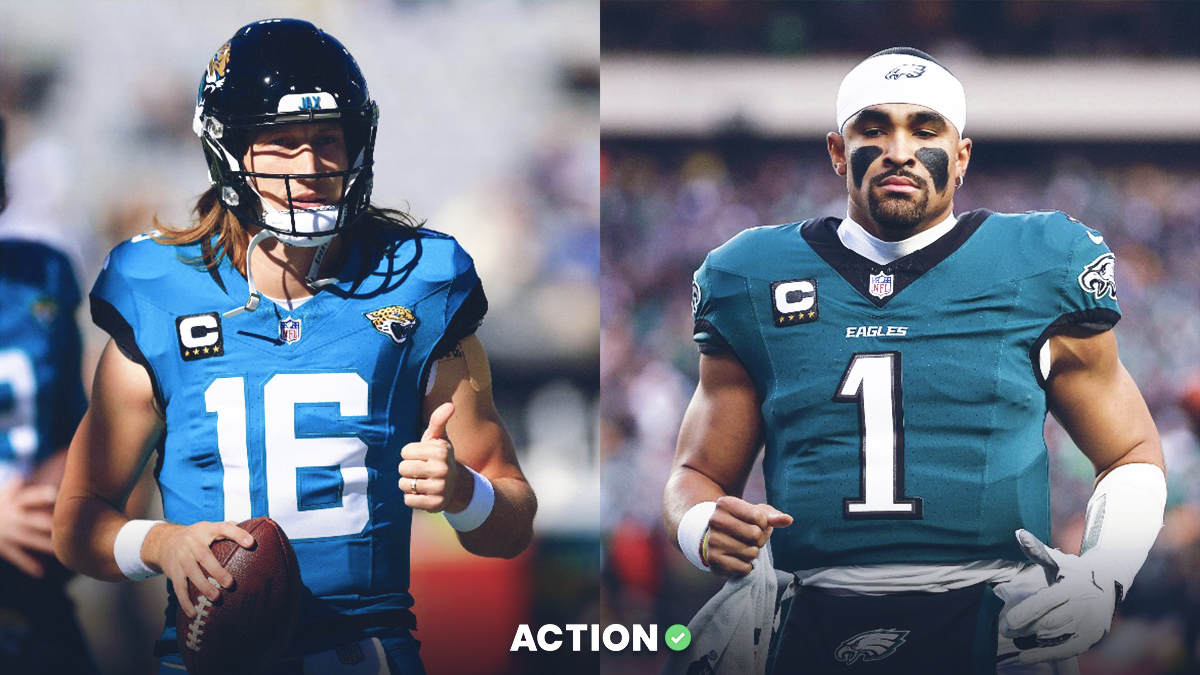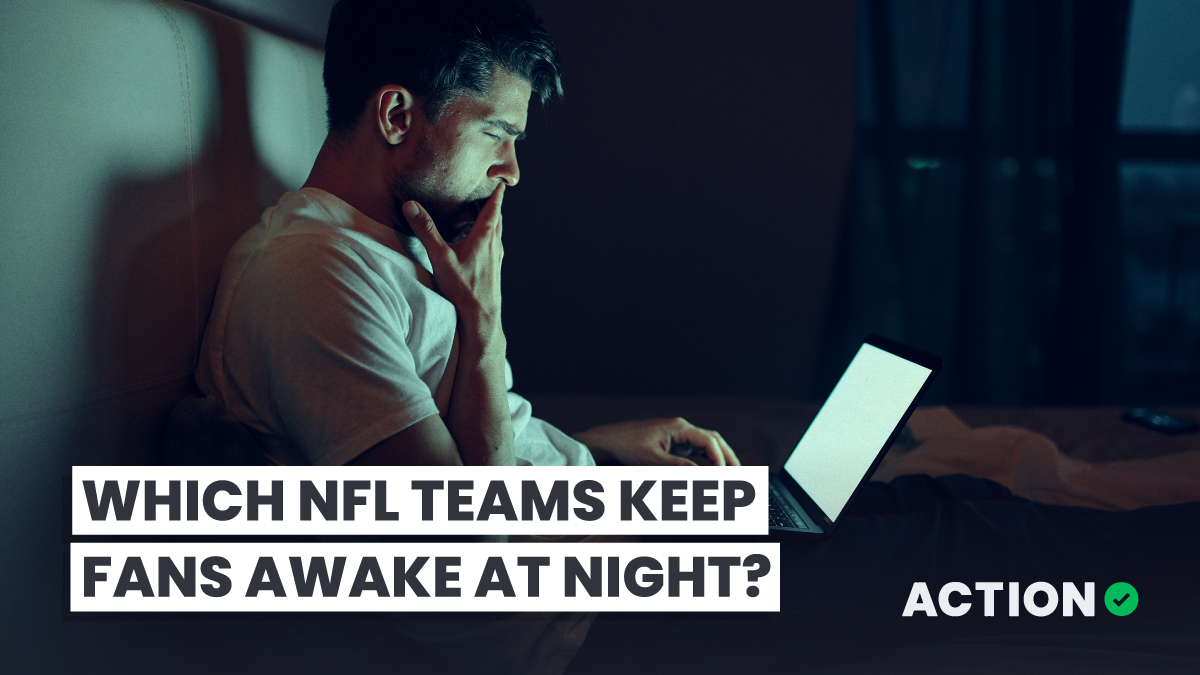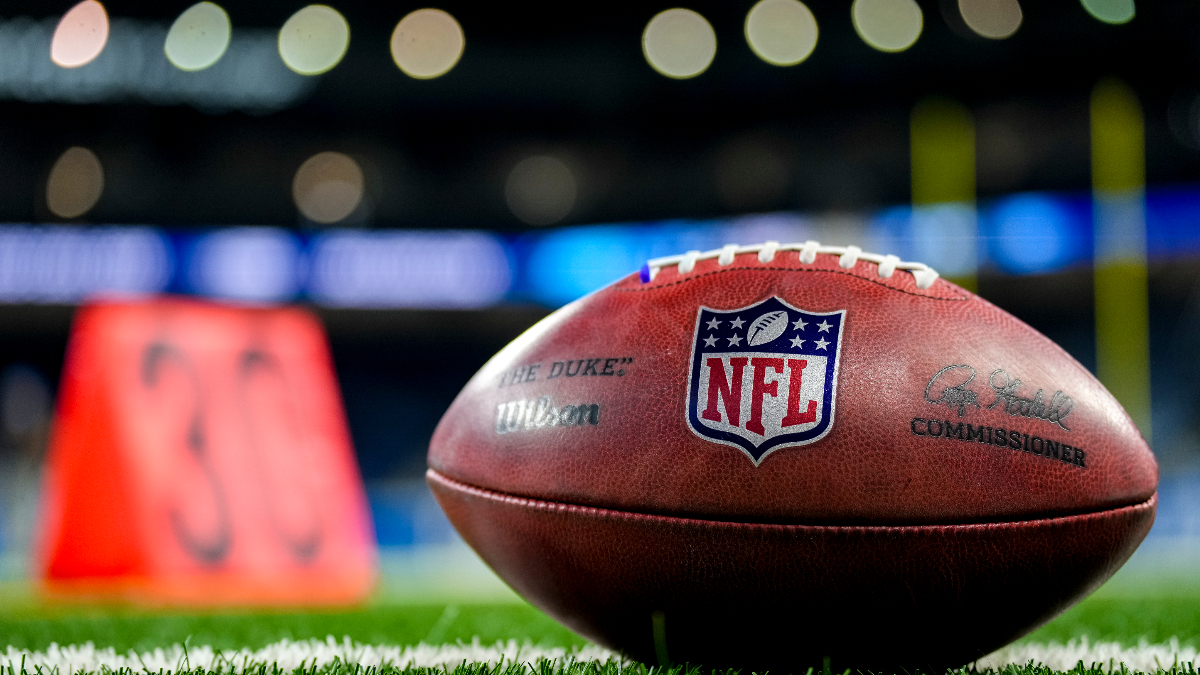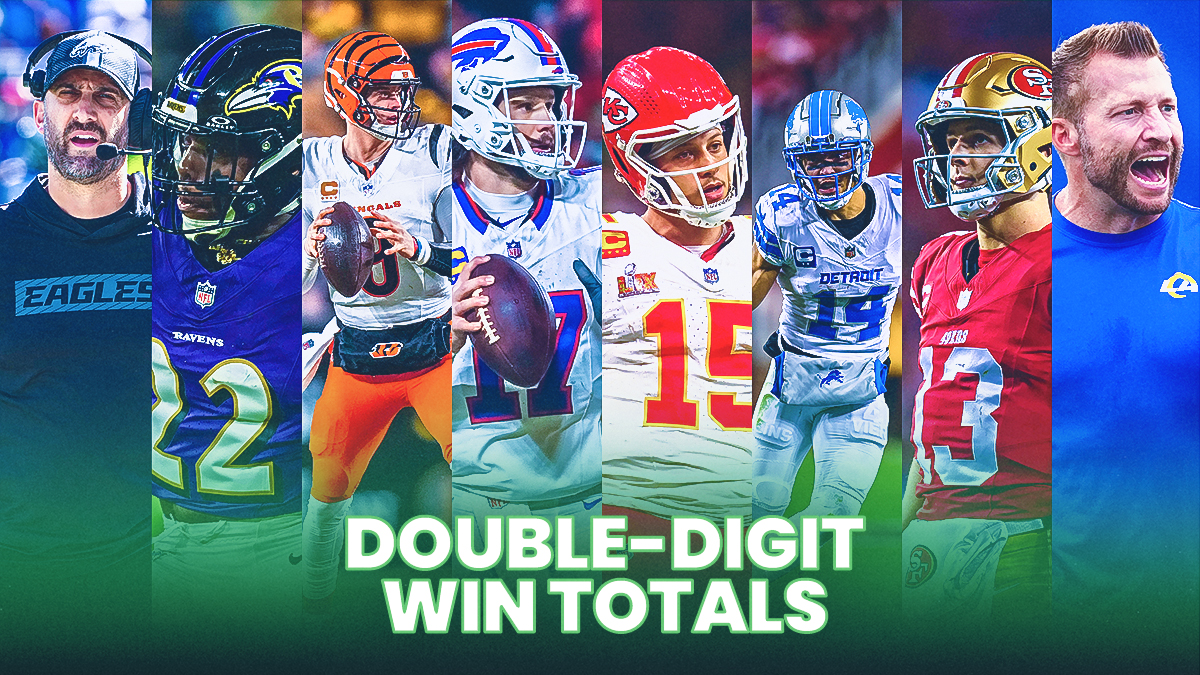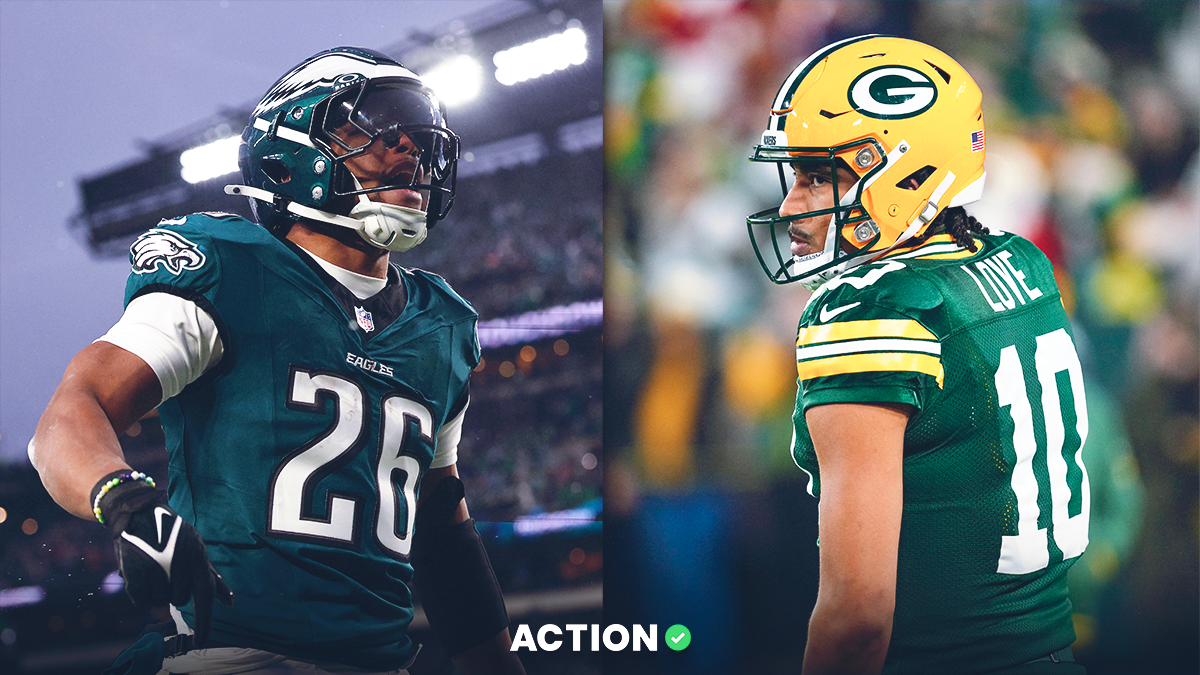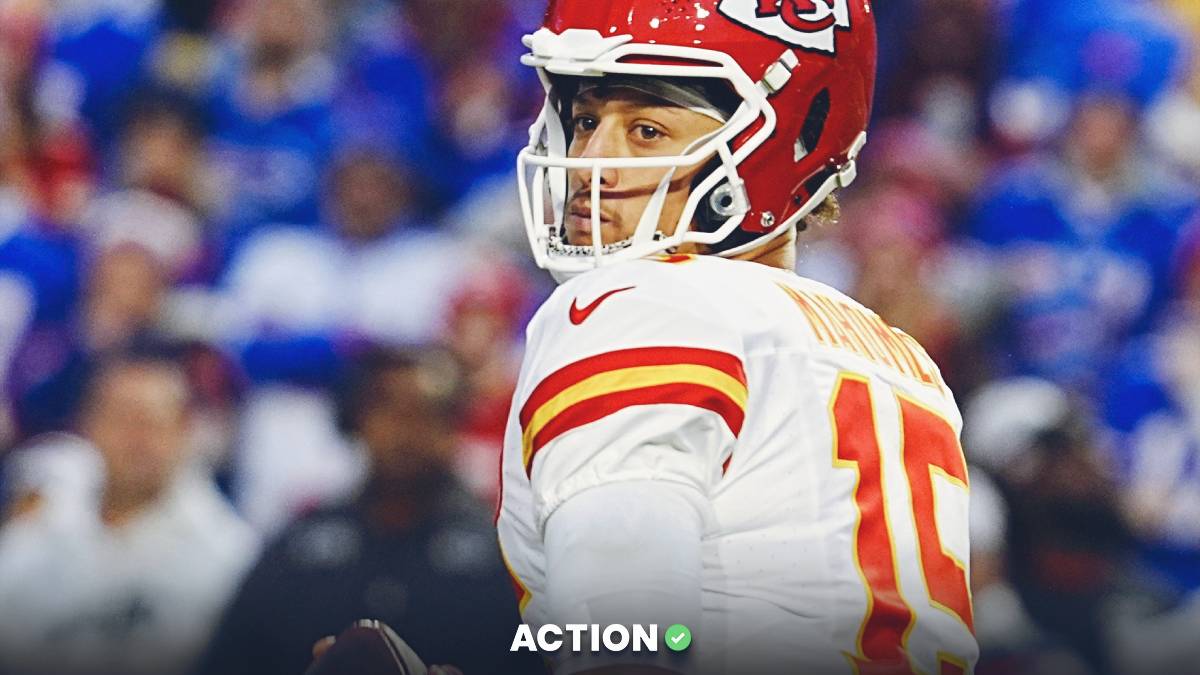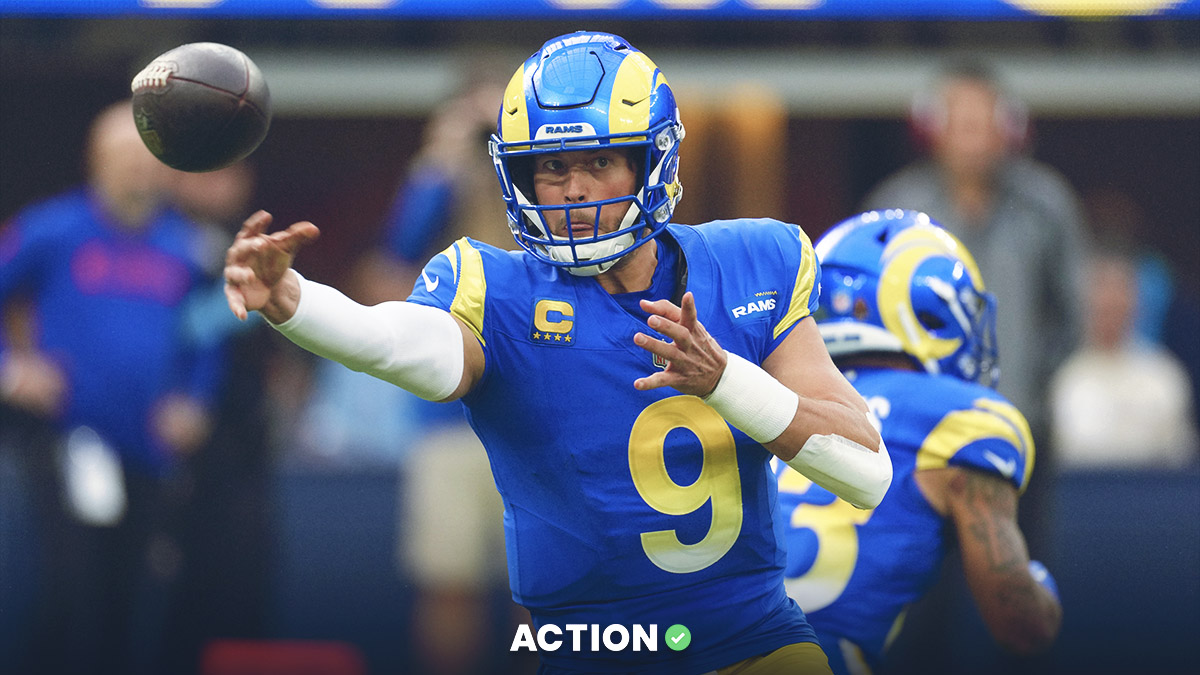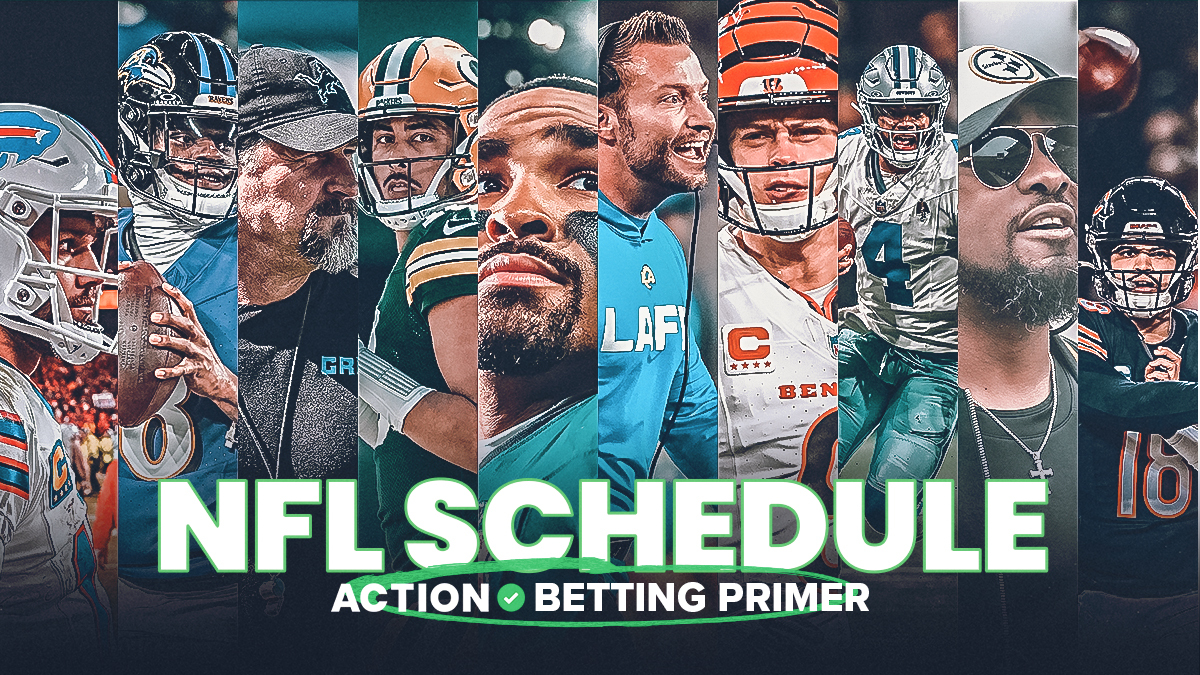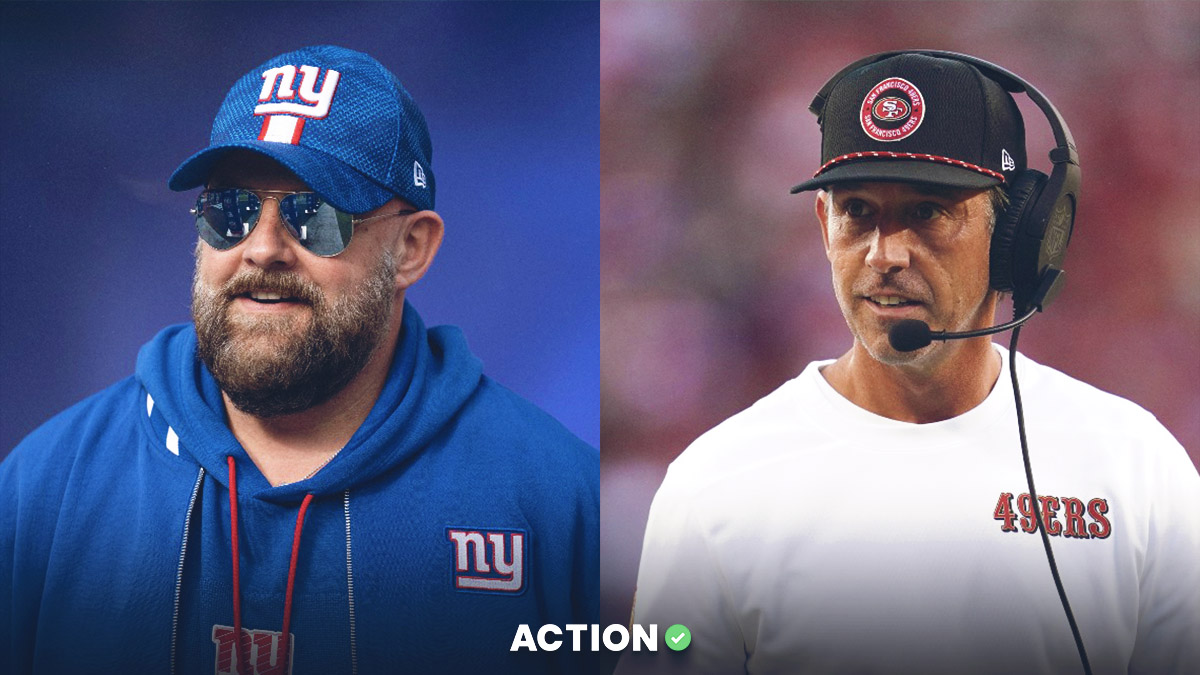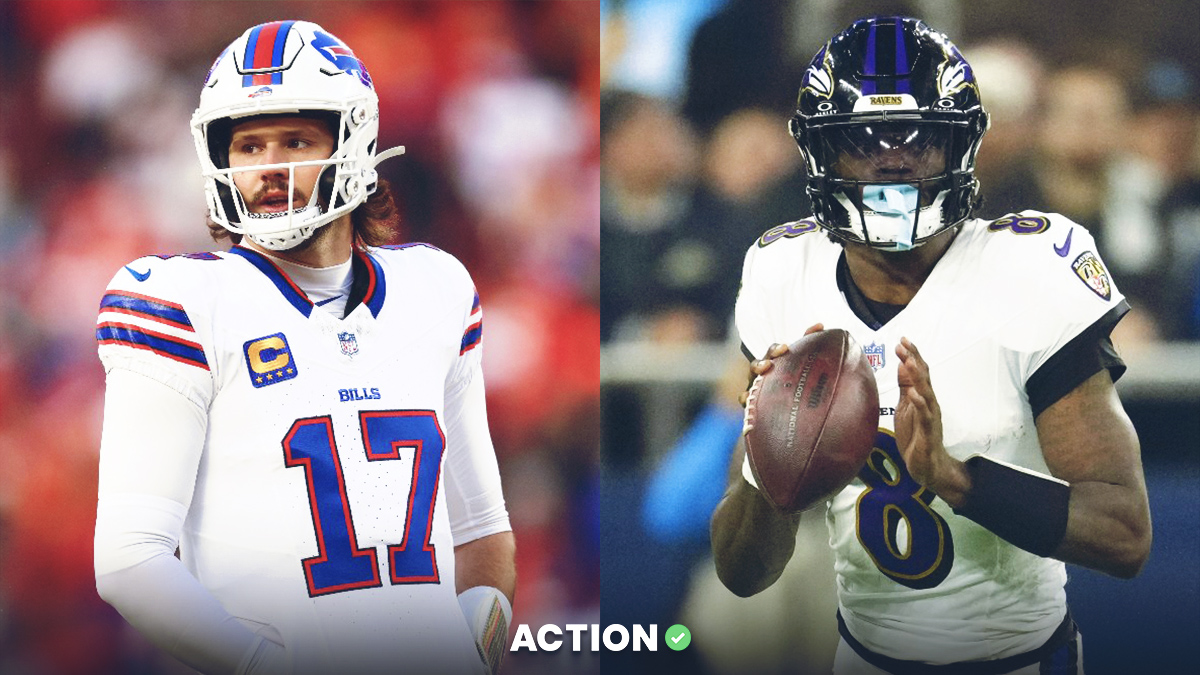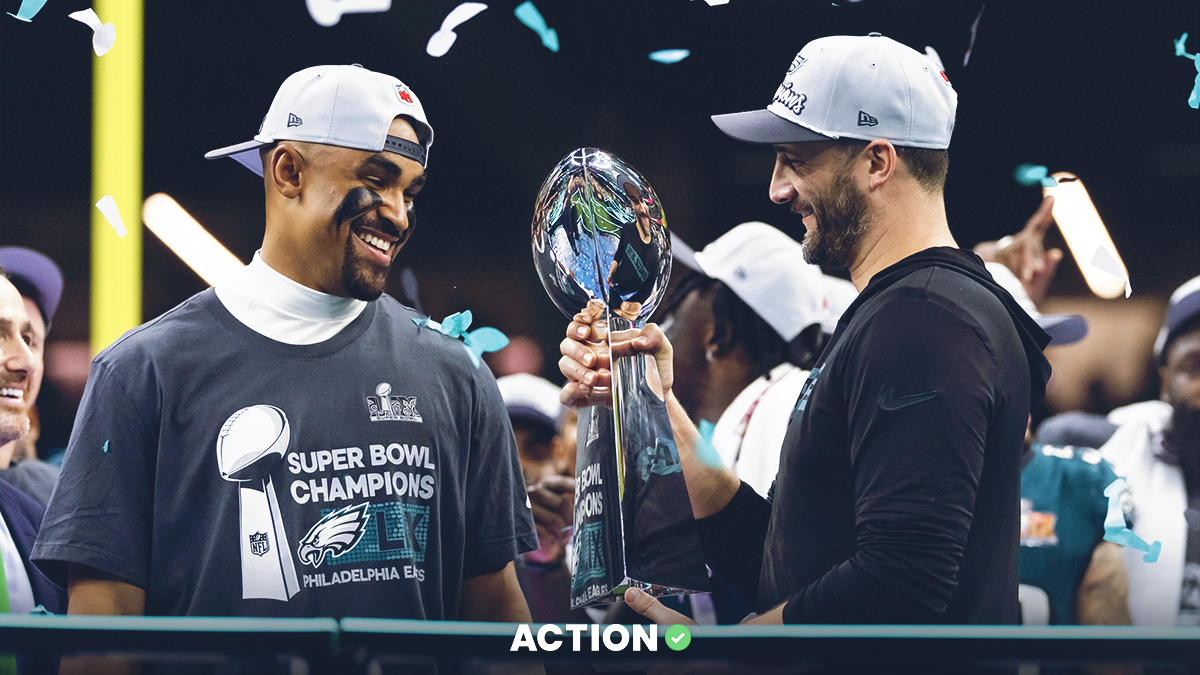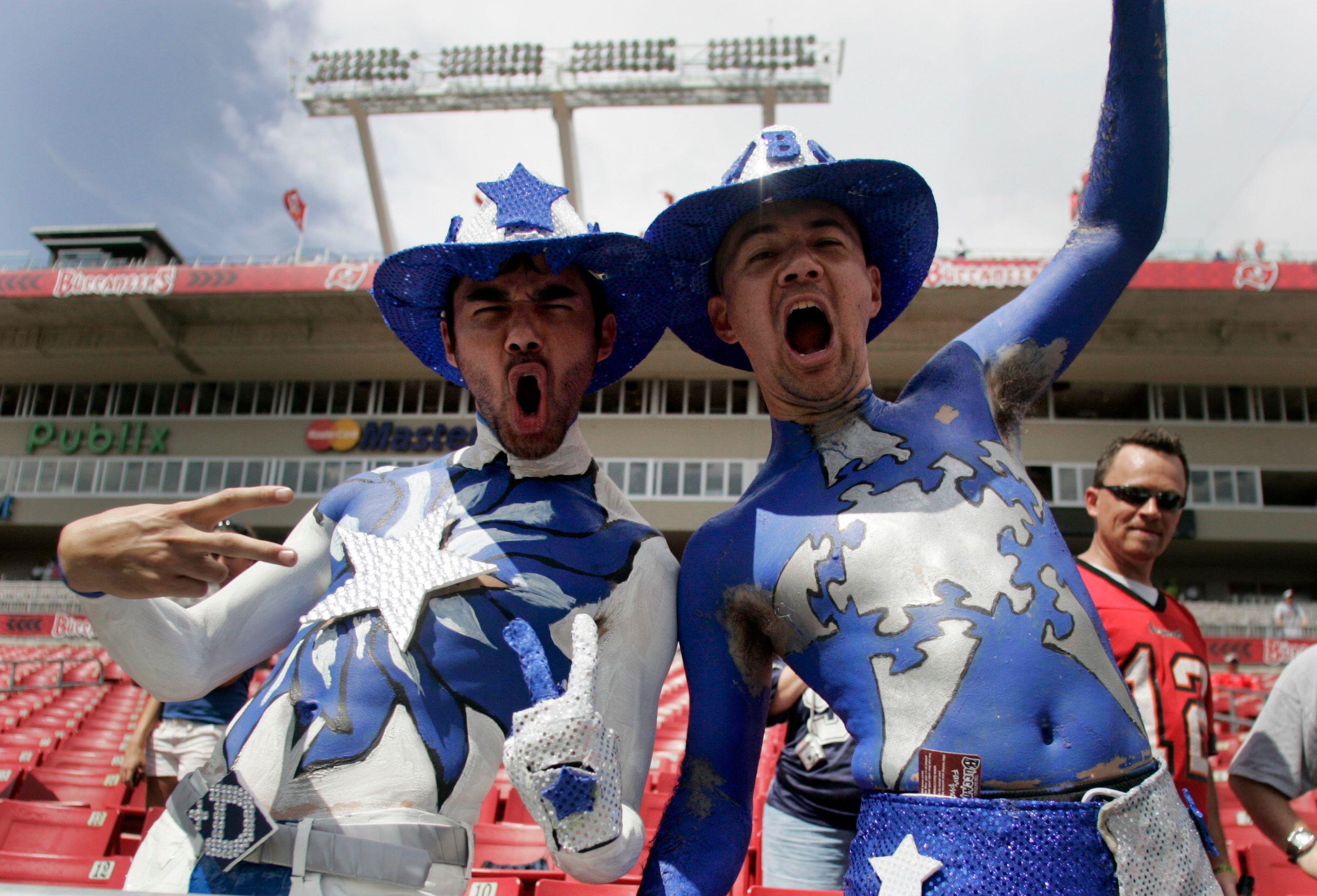It's finally NFL Draft week, and it's not exactly last year's loaded quarterback draft.
In case you forgot, we saw a record six quarterbacks taken in the first round one year ago, all six among the top 12 picks. This year's QB class looks much weaker by comparison, but quarterback is always important.
After all, no position in team sports is more important than QB. Any team without a franchise signal caller will be expected to consider one of the names at the top of the first round of the 2025 NFL Draft.
That certainly looks like it will start with the Tennessee Titans at No. 1, overwhelmingly favored to select Miami QB Cam Ward with the top pick of the draft. Will any of Shedeur Sanders (Colorado), Jaxson Dart (Mississippi), Jalen Milroe (Alabama), or Tyler Shough (Louisville) join Ward in the first round?
Let's start with a scouting report on each of these presumed top five prospects, then look at how to bet them on NFL Draft night.
Reshaping the Way We Evaluate and Draft Quarterbacks
First, a few words on methodology.
In the past, I've typically focused on three simple measures — completion percentage, interception rate, and number of starts — as a starting point for evaluating QBs. Those three metrics helped me identify C.J. Stroud in 2023, Jalen Hurts in 2020 and Lamar Jackson in 2018 as strong draft values and warned me away from guys like Sam Darnold, Josh Rosen and Jacob Eason.
Those metrics are increasingly messy, though, and no longer enough. Completion percentage is progressively obscured by coaching systems that break the numbers and make the college game easier than ever for QBs, and pandemic rules now allow some of these prospects to play five, even six years in college, muddying evaluations as grown men play ball against teenagers.
The way the NFL develops quarterbacks is changing, too. My evaluation process helped me find those names above, but it also steered me away from guys like Josh Allen, Justin Herbert and Jordan Love — raw, toolsy prospects whose metrics didn't measure up in college but who were developed with patience and superb coaching to become three of the top seven or eight quarterbacks today.
In today's league, just getting a pro-ready QB is no longer good enough. NFL coaches can turn guys like Brock Purdy or Geno Smith into quality starters with strong systems now, so just "good enough" QB aren't quite as valuable anymore.
True elite quarterbacks with the ability to break the game and do things on their own don't exactly grow on trees, and they're not always the obvious No. 1 draft pick. Think about Allen, Herbert, Love and Patrick Mahomes. None of them went first in their QB class, nor were they this productive in college.
There are maybe between six and 10 true game-changers playing QB today. If you have one of those guys, you believe you can win the Super Bowl. If you don't, nothing else really matters until you do.
All of that demands a reshaping of how we evaluate and draft quarterbacks. Getting a good enough QB is no longer good enough. Swing for the home run, or strike out so badly you're set up for the next swing.
Let's get to this year's top QBs, starting with a clear No. 1.
1. Cam Ward
Just about everyone agrees Cam Ward is the top quarterback on the board in 2025 — the question is how he stacks up against other recent QB prospects and whether he's worthy of the No. 1 pick.
Ward played five years in college, starting with two at FBS Incarnate Word before transferring to Washington State for a couple seasons, then exploding this final season with Miami (FL). He finished his career with an NCAA-record 158 passing touchdowns for 18,184 yards in 57 starts.
That's a whole lot of playing experience, though it's notable that he's effectively played in the Air Raid system the whole while. It's also notable that Ward tested the draft waters a year ago and was expected to be a Day 3 pick before returning this season and suddenly being anointed No. 1. That's a crazy leap after one year of football at age 22 and should be an immediate red flag in a weak QB class.
Those usual metrics — completion percentage and interception rate — stayed about the same for Ward throughout his college career, though the competition increased along the way. He finished his career at a 65% completion rate with a 1.6% interception rate, with both numbers around par for the course for QB prospects but certainly not standing out.
Ward's arm talent pops, not necessarily elite but easily the best in the class. He has a quick release and loves to attack downfield, hunting big plays, and he played point guard in high school so his basketball skills translate as a distributor.
He also feels familiar with his weird arm angles, wrong-footed throws, and ability to play off-schedule, backyard football. That's appealing because of Patrick Mahomes of course, but there are real questions about Ward's ability to stay on schedule, read coverages, and play within the system.
Ward's mechanics and footwork are all over the place, and his propensity to play hero ball is troubling. His 3.1% Turnover Worthy Play rate per PFF is the worst in the class, and his 5.7% Big Time Throw rate is pretty middling considering his big-game hunting. Ward has a reputation for being competitive and confident, keeping a short memory even after big mistakes, but those big mistakes are killer and just as important as the big plays at the next level.
Ward is no real threat with his legs — multiple outlets have referred to him as a taller, slower Kyler Murray, which sort of feels like defeating the purpose? — and most scouts seem to think he would have ranked somewhere in the mix of Michael Penix, Bo Nix, and J.J. McCarthy in last year's draft, clearly behind the top three QB prospects.
That's all fairly troubling for a guy listed around -20000 to go No. 1 in the draft.
Cam Ward feels like a poor man's Caleb Williams, who was himself a homeless man's Patrick Mahomes. At some point, hunting for the next Mahomes is bound to end in heartbreak.
Ward looks like the best QB in a bad class, but he does not appear worthy of the No. 1 pick, especially with franchise-changing talents like Travis Hunter and Abdul Carter on the board.
There's no value in betting against Ward on NFL Draft night, but bettors should be hesitant to expect that he'll turn the Titans around overnight next season.
DRAFT GRADE: Solid first-round pick, likely top 10 with the usual QB tax
2. Shedeur Sanders
Unless you've watched and studied a lot of Shedeur Sanders, he's probably a bit of a different prospect than you're expecting.
Everybody knows about Deion's kid with all the attention the Sanders duo and Travis Hunter got at Colorado, but if you think you're getting a Deion-style player at QB in Shedeur, you'll be sadly mistaken.
Sanders plays a freewheeling style but is surprisingly limited athletically, and he does like to hold onto the ball and scramble to buy throwing time but is much more point guard than elite playmaker. Sanders plays like he thinks he's Lamar Jackson or Kyler Murray but had negative rushing yards in college and simply isn't that guy.
He does not have elite arm strength and holds the ball too long, inviting pressure and eating 152 sacks in four college seasons. Sanders did play behind a terrible line, but he didn't help his cause and needs to get the ball out quicker and accept what's available in structure, the easy checkdowns and gimmes.
Sanders led the FBS in completion rate at 74.0%, but we're reminded of the context that stat requires these days. Sanders threw a barrage of screens — over 28% of his completions this year — with under 24% of his completions the last two seasons 10+ yards in Pat Shurmur's RPO system. These are quick, easy passes inflating his completion percentage, and they obscure how poor some of the other metrics are like his 22% pressure-to-sack rate and misleadingly low 1.2% Turnover Worth Play rate.
The best comparison from last year's draft for Sanders is Bo Nix, but Nix won a ton of college games and Sanders went 1-7 against ranked teams with Colorado and had his worst games of the season against his top competition. He may already be somewhat maxed out, throwing to likely top-five pick Travis Hunter and playing for effectively a pro coach in Pat Shurmur. Sanders has average arm strength, size, and athleticism, holds the ball too long trying to make plays, and makes questionable decisions.
There are also real questions about a guy who's effectively played for his dad his entire career. Sanders reportedly had a rough interview process and is seen by some as entitled and quick to blame others when things go wrong. Could he be NFL's LaMelo Ball, perhaps more a gimmick than a winning contributor? For all the creative playmaking, Sanders' 0.12 EPA per play is the lowest of any serious QB prospect the last two years, and against just a Charmin-soft 77th-ranked strength of schedule.
Experts compare Shedeur Sanders to a weaker-armed Geno Smith or perhaps Brock Purdy if he hits his upside. That's a first-round pick?! A top-10 guy some think is on par with Cam Ward? Smith and Purdy are the low-mid-range starters NFL teams are looking to replace, not the upside outcomes to hope for if everything goes right on a top-10 prospect.
Shedeur Sanders isn't a bad QB prospect, but he doesn't look anywhere near the media hype at the top of the draft, which could be why he appears to be sliding as we approach draft day.
DRAFT GRADE: Day 2 swing with low-end starter upside
3. Jaxson Dart
Dart is the youngest of the top QB prospects and doesn't even turn 22 for a couple weeks, and he's a developmental project and not ready to start as a rookie.
Despite his youth — a good thing for prospects — Dart still brings 45 college starts to the pros, and he led all FBS players with 10.8 yards per attempt and a 180.7 QB rating this season. His completion percentage leaped to 69% this year, and his interception rate improved the last two seasons to just 1.5%.
The question is whether Dart is just the latest Lane Kiffin merchant.
Kiffin is an elite college play caller, running a spread RPO scheme with heavy play action and deep shots outside the numbers down the field. Kiffin put Dart in a great position to succeed by giving him repeated deep shots to show off his big arm and limiting post-snap decisions within a mostly predetermined structure. That's great for college success but hasn't translated to the pros, where previous Kiffin QB prospects like Matt Barkley, Matt Corral, and Jonathan Crompton have fizzled out.
Dart doesn't have great anticipation as a passer. He holds the ball too long, drops his eyes under pressure, and needs work on ball placement. But he's also sneaky athletic, a far more dangerous runner than the two guys above him, and he led all QB prospects in Big Time Throw rate (7.5%) and PFF grade (92.8).
Jaxson Dart is an intriguing developmental prospect with a big arm and a lot of tools. He has the tools and upside to turn into the best QB in a weak class in time, and that could make him a better investment on Day 2 if Ward and Sanders go as high as expected.
DRAFT GRADE: Day 2 developmental project with intriguing long-term upside
4. Jalen Milroe
Jalen Milroe was a roller coaster ride at Alabama, with high highs and low lows.
There's no questioning Milroe's abilities as a runner. He ran for 1,577 yards and 33 scores with Bama, hitting 40+ yards in 16 games and molly-whopping LSU with 340 rushing yards and eight TDs across two games. This season, one in five Milroe runs went 10 yards or more, and his 12 rushing TDs of 10+ yards are the best in college football this century, just ahead of Lamar Jackson.
Milroe is a big, fast, physical runner, and he's an actual runner, not just a theoretical threat like Anthony Richardson. Scouts have described Milroe as running with Cam Newton power but Lamar Jackson speed. Whew.
The problem is Milroe may be more of a runner than a quarterback.
His accuracy is all over the place, with under 53% completion rate on third and fourth downs, and he has a big arm but no real touch, like a pitcher with a killer fastball but no second pitch. Milroe is not a natural thrower and his accuracy may never get there, and he lacks anticipation as a passer and doesn't manipulate defenders. He also makes too many mistakes, with a terrible 3.0% interception rate and small hands leading to fumbles.
Milroe lacks experience with only 27 starts, and he was stuck playing out of scheme for Kalen DeBoer this season. He hit huge plays — his 16 passing TDs went for an average of 37 yards — but struggled to play QB and lead the team from down to down.
Jalen Milroe is a first-round athlete, but he's not a first-round quarterback. Milroe could have huge upside if the throwing ever develops, but he might be more Taysom Hill than Drew Brees.
DRAFT GRADE: Day 3 home run swing on athleticism and development
5. Tyler Shough
Shough is a very different sort of prospect, because he'll turn 26 already in September after seven years in college.
Despite his age, Shough made only 32 college starts. That's a serious red flag at this stage, with his long injury history robbing Shough of years of development and experience. Consider that Shough initially backed up Justin Herbert for two years and was recruited with Penei Sewell, both NFL veterans now.
Shough has prototypical size and is a gifted thrower with solid tools, arm strength, and accuracy, but he takes too much risk as a passer and appears afraid to take a hit, perhaps due to his injury history. His career 63% completion and 2.4% interception rates are pedestrian and haven't improved much despite Shough's age advantage over his competition.
It's hard to see the appeal in Shough, and it would be stunning to see him go anywhere near the first round. He's likely close to a finished product at his age and looks like a career backup.
DRAFT GRADE: Low-upside Day 3 rotation guy
How to Bet the Quarterbacks on Draft Night
There's no real betting value in the extremes.
Cam Ward appears to be a lock at No. 1, and there's little chance of Jalen Milroe (+165, DraftKings) or Tyler Shough (+325, bet365) sneaking into the first round with their profiles. Those are one-way markets for a reason, though I may nibble Milroe to the Broncos at +5000 (FanDuel) as Sean Payton's new Taysom Hill.
If there's betting value to be had betting on these quarterbacks, it will come via Shedeur Sanders or Jaxson Dart, one way or another.
Sanders has an over/under around 8.5 to 10.5 at most books but has been tumbling near the draft, with those overs heavily juiced in the -600 range. There's even a "free fall" bet at FanDuel for Sanders to be drafted 15th or later, now juiced to -310. If you disagree, you can bet Sanders top 10 at +320 (DraftKings). If you think he slides all the way out of the first altogether, you can bet Sanders second round at -130 (ESPN Bet) — another conspicuously one-way market.
Dart's over/unders sit around 21.5 to 24.5 at various books, juiced to the over at around -200. Books are expecting Dart to fall outside the top 20 picks but stay inside the first round, with that priced at -250 at DraftKings and second round at +200 (ESPN Bet).
Here's where a little draft history lesson could be a helpful reminder.
Despite mock drafts pushing quarterbacks up, up, up as we approach draft day every year, QBs routinely go later than expected.
Mock drafts love to project teams trading into the end of the first round for a QB, citing the desire to grab that extra contract year, but that's outdated. No team has traded up into the end of the first for a QB since Baltimore moved to the final pick of the round in 2018 for Lamar Jackson.
In fact, Jordan Love (2020) is the only other QB even drafted after pick No. 20 in the first round at any point in the last decade. That's two QBs in 118 draft picks in that time span — just 1.7% of the picks from No. 21 to 32.
It makes sense. Teams don't just fall into a franchise quarterback. Either you believe enough in a guy to go get him or you don't and likely don't take him in the first round at all.
You don't half-ass your franchise into a new QB.
The question then is whether teams believe enough in Sanders and Dart to make them top-20 picks. And remember, books are all but telling us no team is taking either guy in the top 10. Every team between pick No. 11 and No. 20 already has a plan at QB, other than Seattle at No. 18.
Many mocks seem set on sending Shedeur Sanders to Pittsburgh at No. 21 after a slide. Does Pittsburgh really seem like the sort of franchise that wants to invest in Deion's kid with character questions, just a few years after swinging and missing so badly on Kenny Pickett in round one?
It only takes one, but I'm struggling to find a fit that makes sense for Sanders. I'm not even certain he should be the second QB taken. Dart is +225 (bet365) if you agree he has more upside and +800 (bet365) if you like the potential Rams fit as a developmental Sean McVay project to eventually replace Matthew Stafford.
At the end of the day, I prefer to keep things simple and go back to Old Faithful: betting the under on round-one QBs on draft night. Most books have this prop at 2.5 QBs, with the over slightly juiced to around -120 and the under at +110 (DraftKings, BetRivers, bet365), and the under should hit if either Sanders or Dart slips out of the first — or both.
Give me under 2.5 first-round quarterbacks at +110. I don't believe in this year's QB class, and I don't think these NFL teams do either.


